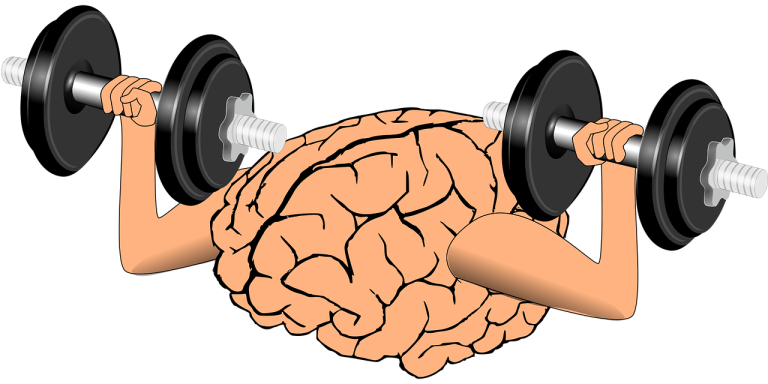Love Yourself First
What does it mean to love yourself? And why is it so essential?
We will explore the concept of self-love, dispel common misconceptions, and discuss the impact of neglecting self-love, thus encouraging everyone to revamp their lives through self-love.
We will also provide practical steps to help you embark on a journey towards self-compassion and self-acceptance.
“Gonna love myself. No, I don’t need anybody else.” —Hailee Steinfeld

Let’s dive in and discover the transformative power of loving yourself first.
Key Takeaways:
- Loving yourself first means prioritizing your well-being and happiness before others.
- It is not selfish but essential for personal growth and achieving goals.
- Not loving yourself first can lead to negative consequences, such as struggling to achieve goals and damaged relationships.
Love Yourself First as a Framework
Understanding the concept of loving yourself first involves:
- We are looking into the depths of self-love.
- Personal growth.
- Setting healthy boundaries to foster self-esteem and well-being.
It’s a journey that can impact mental health positively, addressing issues like toxicity and embracing authenticity, much like the affirming message of Ru Paul’s Drag Race.
Self-love is not just about bubble baths and indulgence; it’s about recognizing your worth, forgiving yourself, and celebrating your uniqueness. Personal growth requires stepping out of your comfort zone, confronting fears and insecurities, and embracing challenges as opportunities for development.
Setting boundaries is essential for maintaining healthy relationships and protecting your mental well-being, allowing you to prioritize self-care and avoid overextending yourself.
What Does Self-Love Mean?
Self-acceptance, a vital component of self-love, involves recognizing and embracing all aspects of oneself, strengths and weaknesses, without judgment. It is about acknowledging one’s worthiness and inherent value as a human being, regardless of external validation or societal expectations.
Compassion, another critical element, entails treating oneself with kindness, understanding, and forgiveness. It is about offering the same level of empathy and care to oneself as one would to a beloved friend or family member.
“The worst loneliness is to not be comfortable with yourself.” —Mark Twain
Nurturing oneself involves prioritizing self-care, setting boundaries, and engaging in activities that promote mental, emotional, and physical well-being. This may include practicing mindfulness, pursuing hobbies, seeking therapy, or simply taking time for relaxation and enjoyment.
Importance of loving yourself first
Recognizing the Importance of loving yourself first is pivotal for personal growth, improved self-esteem, and addressing inner critics through therapy and self-reflection.
Self-love is a foundation for building resilience and navigating life’s challenges with a positive mindset. By nurturing a healthy relationship with oneself, individuals cultivate a sense of worthiness and acceptance, which fuels their journey toward personal fulfillment.
Through therapy, individuals can delve deep into their inner world, gaining insights into their triggers and patterns of self-criticism.
Check out the new Motivation Mentor AI Coach
app from Motivation Pay… It’s FREE!
Therapy offers a safe space to explore their emotions, confront their fears, and develop strategies to counter negative thought patterns. It serves as a tool for promoting self-awareness and breaking free from limiting beliefs that hinder personal growth.
Common Misconceptions
Common misconceptions about loving yourself first often revolve around notions of toxic positivity, the reliance on romantic partners for validation, the struggle with authenticity, and the burden of emotional baggage.
Many individuals mistakenly equate self-love with constantly exuding positivity, failing to acknowledge the Importance of embracing one’s genuine emotions, both positive and negative. In reality, self-love encompasses accepting oneself holistically, including the imperfections and vulnerabilities that make us human.
The idea that romantic relationships are the primary source of validation can lead to dependency and a distorted sense of self-worth. It is crucial to cultivate self-validation and self-worth from within, independent of external validation.
Authenticity plays a significant role in self-love, as the pressure to conform to societal standards and expectations can hinder one’s ability to connect with oneself genuinely. Embracing one’s authentic self, flaws and all, is essential for genuine self-love and acceptance.
Loving yourself first isn’t selfish
Dispelling the myth, loving yourself first Isn’t selfish. It’s about establishing healthy boundaries, nurturing relationships, and practicing forgiveness.
Self-love forms the foundation of all healthy relationships, including the one you have with yourself. By prioritizing your well-being and happiness, you are better equipped to give love and compassion to others.

Setting boundaries is essential to self-love, as it teaches others how to treat you and respect your needs. Forgiveness, another crucial aspect of self-care, allows you to let go of past hurts and advance personal growth.
Loving Yourself Doesn’t Come Naturally
Self-love is a journey that demands inner exploration and a keen understanding of one’s desires and shortcomings. It calls for recognizing and cherishing one’s uniqueness and strengths while acknowledging and working on areas that need growth.
Embracing self-acceptance involves letting go of self-judgment and embracing imperfections as part of one’s growth. It’s about finding peace with oneself and cultivating a positive self-image.
“Self-care is never a selfish act—it is simply good stewardship of the only gift I have, the gift I was put on earth to cherish and spend wisely.” – Parker Palmer
Striving for authenticity means living in alignment with one’s values, beliefs, and desires rather than conforming to societal pressures or expectations. It requires a deep self-awareness and the courage to be true to oneself.
Self-Love Isn’t Just Treating Yourself
Loving yourself involves self-care practices, continuous self-improvement, and sometimes seeking therapy for deeper introspection and healing.
Incorporating self-love into our daily lives means prioritizing our mental and emotional well-being. Setting boundaries, practicing mindfulness, and engaging in activities that nurture our soul are essential elements of a comprehensive self-care routine.
Embarking on a journey of personal growth through self-reflection, goal-setting, and learning new skills contributes significantly to building healthy self-esteem.
Therapy is a valuable tool in self-exploration, providing a safe space to delve into our past experiences, understand our emotions, and develop healthier coping mechanisms. It enables us to confront our inner struggles, break free from limiting beliefs, and cultivate a more vital self-awareness and acceptance.
It’s Not About Romantic Love
Contrary to popular belief, loving yourself first centers on setting healthy boundaries, releasing emotional baggage, and prioritizing self-acceptance. It is not simply about romantic love and external acceptance.
Self-love is vital to overall well-being, distinct from romantic love, which often involves external validation and dependence on others.
You cultivate a deep sense of self-worth and resilience by establishing clear boundaries and honoring your needs.Releasing emotional baggage is another crucial aspect of loving oneself. This involves letting go of past hurts, negative beliefs, and toxic patterns that hinder personal growth.
Embracing self-acceptance means acknowledging your strengths and imperfections without harsh self-criticism.
Regarding relationships, understanding the difference between self-love and romantic love is critical to forming healthy connections. Valuing your worth sets the stage for attracting partners who appreciate and respect you, fostering mutual growth and fulfillment.
A Continuous Journey
Cultivating self-love involves a deep commitment to personal growth over the long term. It’s about a willingness to embrace vulnerability as a strength rather than a weakness.
By incorporating mindfulness into your daily routine, you can develop a deeper connection with your inner self and better understand your emotions and thought patterns.
Living authentically means staying true to your values, beliefs, and desires, even when faced with societal pressures or expectations. It allows you to cultivate inner peace and confidence by aligning your actions with your true self.
Risks of Not Loving Yourself
The impact of self-neglecting yourself first can lead to toxic behaviors, unresolved emotional baggage, challenges in setting boundaries, and even conditions like C-PTSD that stem from a lack of self-compassion and acceptance.
When one fails to prioritize self-love and self-care, they may perpetuate damaging cycles of negative thought patterns and behaviors. This can manifest in various ways, such as self-sabotage, seeking validation from others, and engaging in harmful relationships.

The accumulation of this toxic behavior can further exacerbate existing emotional burdens, making it difficult to navigate daily life with resilience and confidence.
The absence of solid boundaries due to a lack of self-love can leave individuals vulnerable to manipulation, exploitation, and a constant state of emotional turmoil. Such experiences can contribute to the development of complex post-traumatic stress disorder (C-PTSD), which often stems from prolonged exposure to interpersonal trauma and neglect.
Struggling to Achieve Personal Goals
Not prioritizing self-love can result in struggling to achieve personal goals, hindering personal growth, affecting self-esteem, and presenting unique challenges for neurodiverse individuals who require additional self-compassion and understanding.
Self-love forms the foundation upon which individuals build their aspirations and pursue personal growth. With this essential component, individuals may constantly battle inner turmoil and doubt, making staying motivated and focused on their goals manageable.
The absence of self-love can lead to a negative self-perception, hindering the development of a strong sense of self-worth and confidence. This lack of self-esteem can prove to be especially detrimental for neurodiverse individuals, who often face added challenges in navigating societal expectations and perceptions in addition to their unique neurological conditions.
Deterioration of Relationships
The Deterioration of Relationships is a common outcome when self-love is lacking, as toxic behaviors, blurred boundaries, and the absence of forgiveness erode the foundation of healthy and fulfilling connections.
When individuals struggle to love themselves, they often project their insecurities onto others, resulting in behaviors that poison the relationship dynamic.
“Love yourself enough to set boundaries. Your time and energy are precious. You get to choose how you use it.” – Anna Taylor
This can lead to a cycle of mistrust, hurtful communication patterns, and an inability to set clear boundaries.
Without self-love, individuals may find it challenging to forgive past transgressions or mistakes, hindering the healing process essential for maintaining harmonious connections.
Practical Steps to Loving Yourself First
Embarking on the journey of loving yourself involves:
- Taking Practical Steps such as seeking therapy.
- Addressing the inner critic.
- Establishing healthy boundaries.
- Practicing mindfulness to cultivate self-compassion and acceptance.
Therapy can be a powerful tool, providing a safe space to explore your thoughts and emotions and gain clarity on self-worth. Setting clear boundaries is essential in protecting your mental health and fostering positive relationships.
Mindfulness practices, such as meditation and deep breathing exercises, help quiet the mind and nurture a sense of inner peace. By silencing the inner critic’s harsh voice through positive affirmations and self-compassion, you can gradually shift towards a mindset of self-love and self-care.
Seeking Support and Guidance
One of the Essential Steps in loving yourself first is Seeking Support and Guidance through therapy, self-improvement resources, and self-care practices that nurture self-compassion and emotional well-being.
Therapy allows individuals to delve into their emotions, past experiences, and thought patterns with a trained professional, facilitating healing and growth. Self-improvement tools, such as journaling, meditation, or gratitude practices, give individuals the power to take control of their emotional wellness and cultivate self-awareness.
Self-care practices, such as exercise, adequate rest, and nurturing relationships, promote emotional well-being and foster self-compassion. These activities provide a foundation for individuals to prioritize their mental health and practice kindness towards themselves.
Overcoming Your Inner Critic
Confronting and Overcoming Your Inner Critic is a crucial step in loving yourself first, requiring self-improvement efforts, authentic introspection, and a shift towards self-affirming beliefs.
One effective strategy for challenging the inner critic is to observe and question the validity of critical thoughts, replacing them with more positive and constructive affirmations. Through mindfulness exercises and self-reflection, individuals can gain insight into their thought patterns and learn to differentiate between self-criticism and constructive self-evaluation.
“We accept the love we think we deserve.” —Stephen Chbosky
Embracing authenticity in self-assessment involves acknowledging vulnerabilities and imperfections as part of being human and fostering self-compassion and empathy towards oneself. By cultivating a growth mindset and focusing on personal development goals, individuals can gradually neutralize the impact of their inner critic and build a more resilient self-image.
Establishing Healthy Boundaries
Setting and Upholding Healthy Boundaries is fundamental to loving yourself first, fostering authentic relationships, and safeguarding emotional well-being from external influences.
When you establish clear boundaries, you honor your needs and values, creating a space where you feel respected and understood. Self-respect is the cornerstone of healthy relationships, setting the tone for how others should treat you.
By effectively communicating your limits, you give yourself the power to maintain a sense of autonomy and control over your emotional state.

Implementing boundaries doesn’t mean shutting others out but inviting more respect and understanding into your interactions. Emotional balance flourishes in an environment where boundaries are respected, allowing genuine connections without manipulation or toxicity.
Practicing Self-Kindness, Forgiveness, and Patience
Practicing self-kindness, forgiveness, and patience is a powerful motivation and inspiration for embracing a journey of self-love and fostering self-compassion, resilience, and mindfulness in daily life. Embracing self-kindness entails treating oneself with the same compassion and understanding that one would offer a close friend facing challenges.
“Loving yourself isn’t vanity. It’s sanity.” – Katrina Mayer
By extending self-compassion, individuals can navigate hardships with grace and acceptance. Forgiveness plays a crucial role in releasing the burdens of past grievances, freeing the mind to focus on present growth. Patience allows mistakes and setbacks to be valued as learning opportunities, contributing to personal development and emotional resilience.
Motivation and inspiration derived from practicing self-kindness, forgiveness, and patience can profoundly transform one’s relationship with oneself, promoting a more fulfilling and empowered existence.







